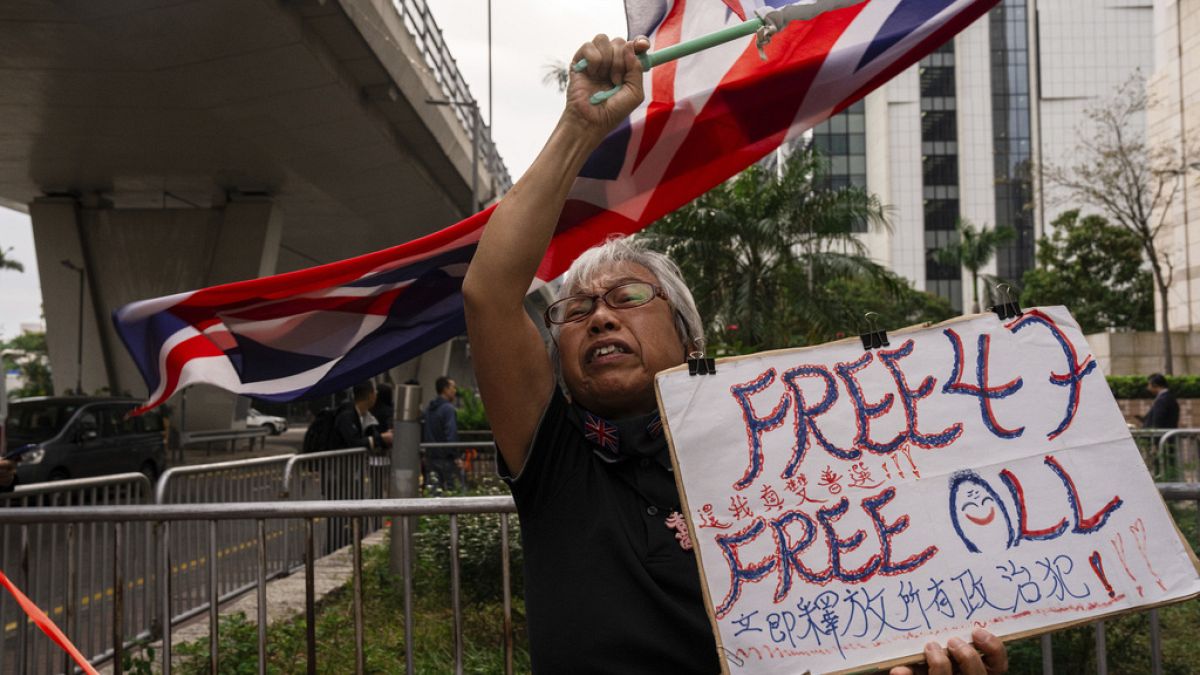Some of Hong Kong’s best-known pro-democracy activists went on trial Monday in the biggest prosecution yet under a law imposed by China’s ruling Communist Party to crush dissent.
A Hong Kong court started hearing the final arguments Wednesday of some of the city's best-known pro-democracy activists tried under a law imposed by China’s ruling Communist Party to crush dissent.
The activists' subversion trial is the biggest prosecution yet under the law.
The law, implemented by the ruling Communist Party, has been criticised for suppressing dissent and jeopardising Hong Kong's autonomy and global business status since its return to China in 1997.
Sixteen defendants, including well-known figures like legal scholar Benny Tai, former student leader Joshua Wong, and opposition party leaders Wu Chi-wai and Alvin Yeung, could potentially face life imprisonment if found guilty.
These individuals were part of a group of 47 pro-democracy figures arrested in 2021 under the national security law, enacted in response to the 2019 protests. The charges are linked to their involvement in an informal 2020 primary election, organised to select pro-democracy candidates for the Legislative Council.
Prosecutors accuse them of trying to paralyse Hong Kong’s government and topple the city’s leader by securing a majority to veto budgets.
The pro-democracy movement has largely dried up after activists were jailed or went into exile. Growing numbers of young professionals have responded to the erosion of Hong Kong’s Western-style civil liberties by leaving for Britain, the United States and other countries. The United States imposed sanctions on officials it said were to blame for the abuses.
The prosecution involves many of the city’s most prominent activists, including legal scholar Benny Tai, former student leader Joshua Wong and opposition party leaders Wu Chi-wai and Alvin Yeung.
Ahead of the opening statements, 16 activists, pleaded not guilty in front of the judges, who were approved by the city’s leader to oversee the case. “There is no crime for me to plead guilty,” former lawmaker Leung Kwok-hung said.
Those who intend to plead guilty will receive their sentencing after the trial. Some of them, including Joshua Wong and former district councillor Lester Shum, were in the courtroom to observe the trial.
The court also heard that four of the 47 activists would give evidence as prosecution witnesses.
Earlier in the morning, more than 200 people, including relatives and friends of the defendants, lined up outside the court building as local police stepped up security in the area.
Some people at the front of the line, including a group of more than 10 who came at 6 a.m. to secure a seat for the hearing, said they had no clue what the trial was about. That prompted pro-democracy activists among the spectators to question whether they were just trying to occupy the seats so that other members of the public could not get a place to observe the high-profile trial.
The trial is expected to last 90 days. The case has drawn international scrutiny, with advocacy groups and politicians condemning the charges.
Amnesty International’s deputy regional director Hana Young called for the charges to be dropped, saying the activists were forced to decide whether they should admit liability to “a non-existent crime” for a potential penalty reduction or fight a losing battle.
“With this mass trial, the Hong Kong government is attempting to shut off all meaningful political participation in Hong Kong,” she said.
But she added the authorities would never be able to fully silence dissidents, pointing to the protest outside the court.
The government postponed the legislative election that would have followed the primary, citing public health risks during the coronavirus pandemic. The electoral system was later overhauled to give Beijing more control over who is elected to Hong Kong’s legislature.
The national security law criminalises secession, subversion, and collusion with foreign forces to intervene in the city’s affairs as well as terrorism. Apart from the activists, pro-democracy publisher Jimmy Lai is also facing collusion charges under the law.
_____
